Alert Configuration
StreamPark supports a variety of alerts, mainly as follows:
- E-mail: Mail notification
- DingTalk: DingTalk Custom Group Robot
- WeChat: Enterprise WeChat Custom Group Robot
- Lark: Feishu Custom Group Robot
StreamPark support any combination of alerts
SMS notificationandwebhook callbacknotification will be supported in the future 1Test exception will be fed back to the front-end page
Added alert configuration
Click StreamPark -> Setting on the left, then click Alert Setting to enter the alert configuration.
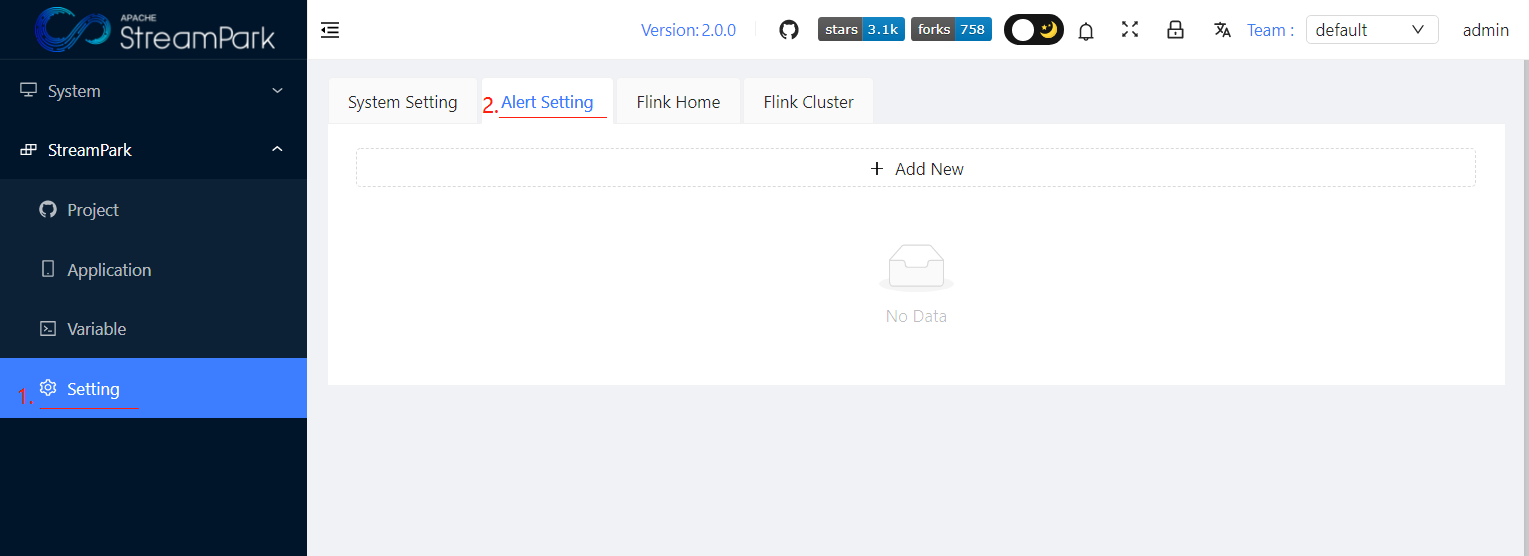
Click Add New to add alert configuration:
1.Name alert will be added
2.Choose AlertType, then configure the corresponding configuration item.
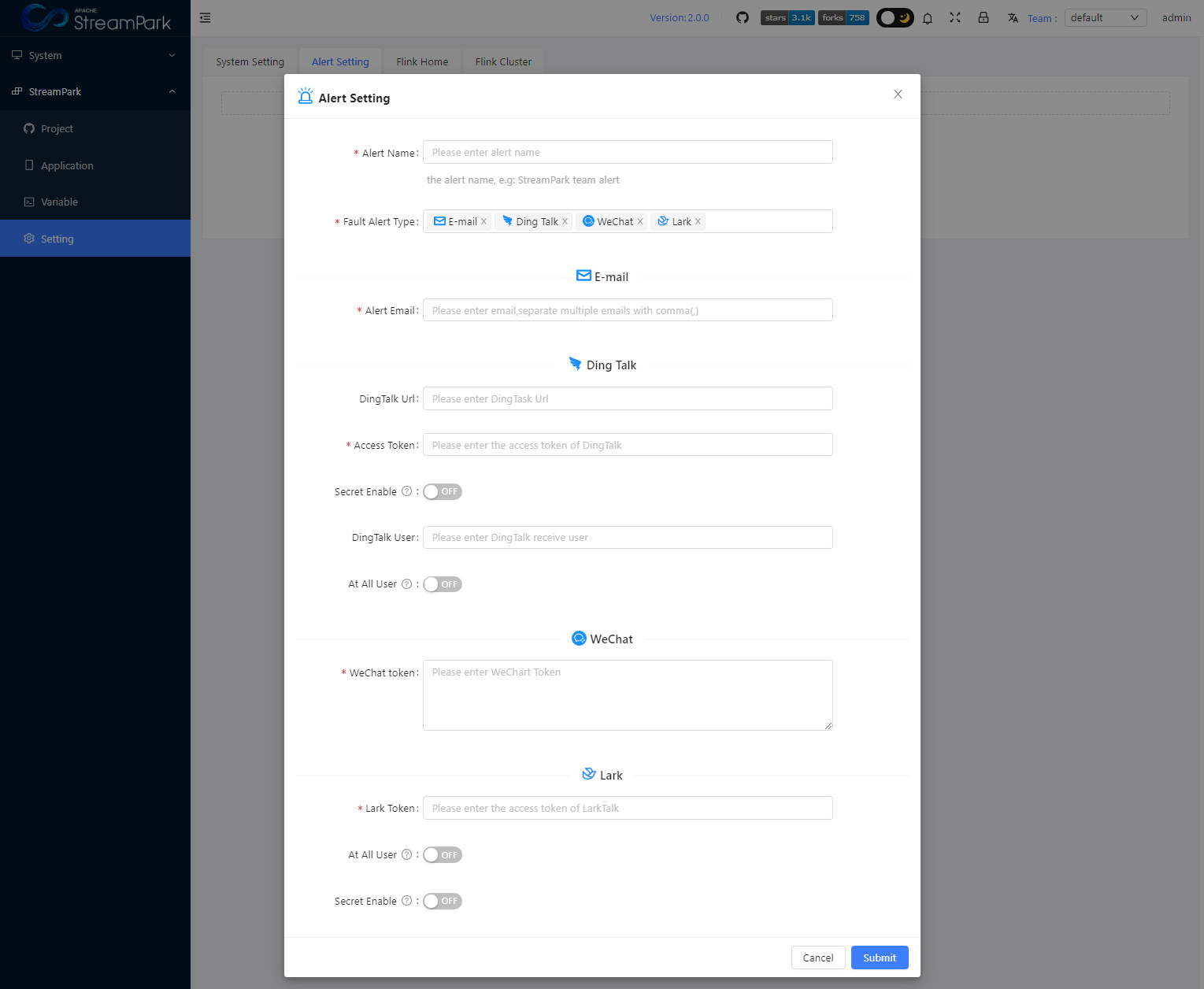
The configuration content of different alert types is as follows:
E-mail
Firstly, choose E-mail as the alert type.
Then, enter Alert Email and click Submit.
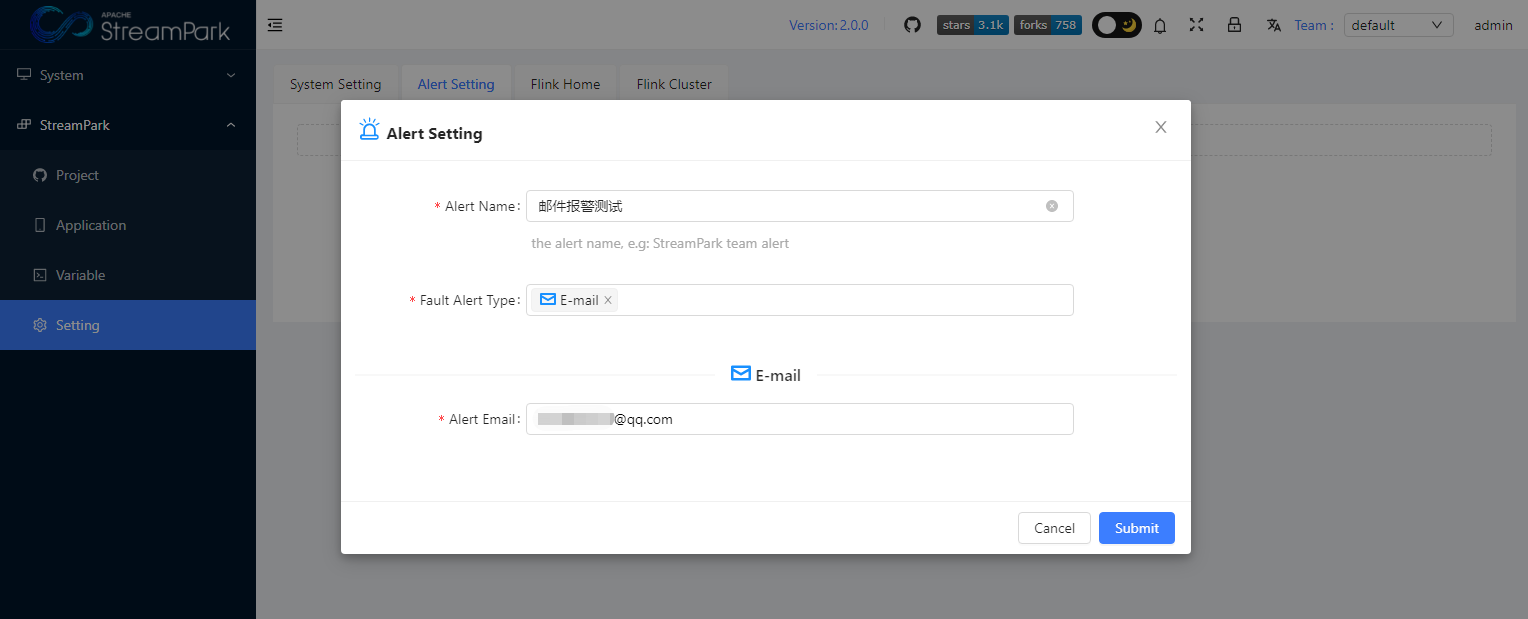
Configuration instructions:
Alert Email:Required, The email address of the email notification. Multiple email addresses need to separate by commas ’ ,’.
To use the email alarm notification method,please configure system mail sending
information: Setting -> System Setting -> Sender Email Setting
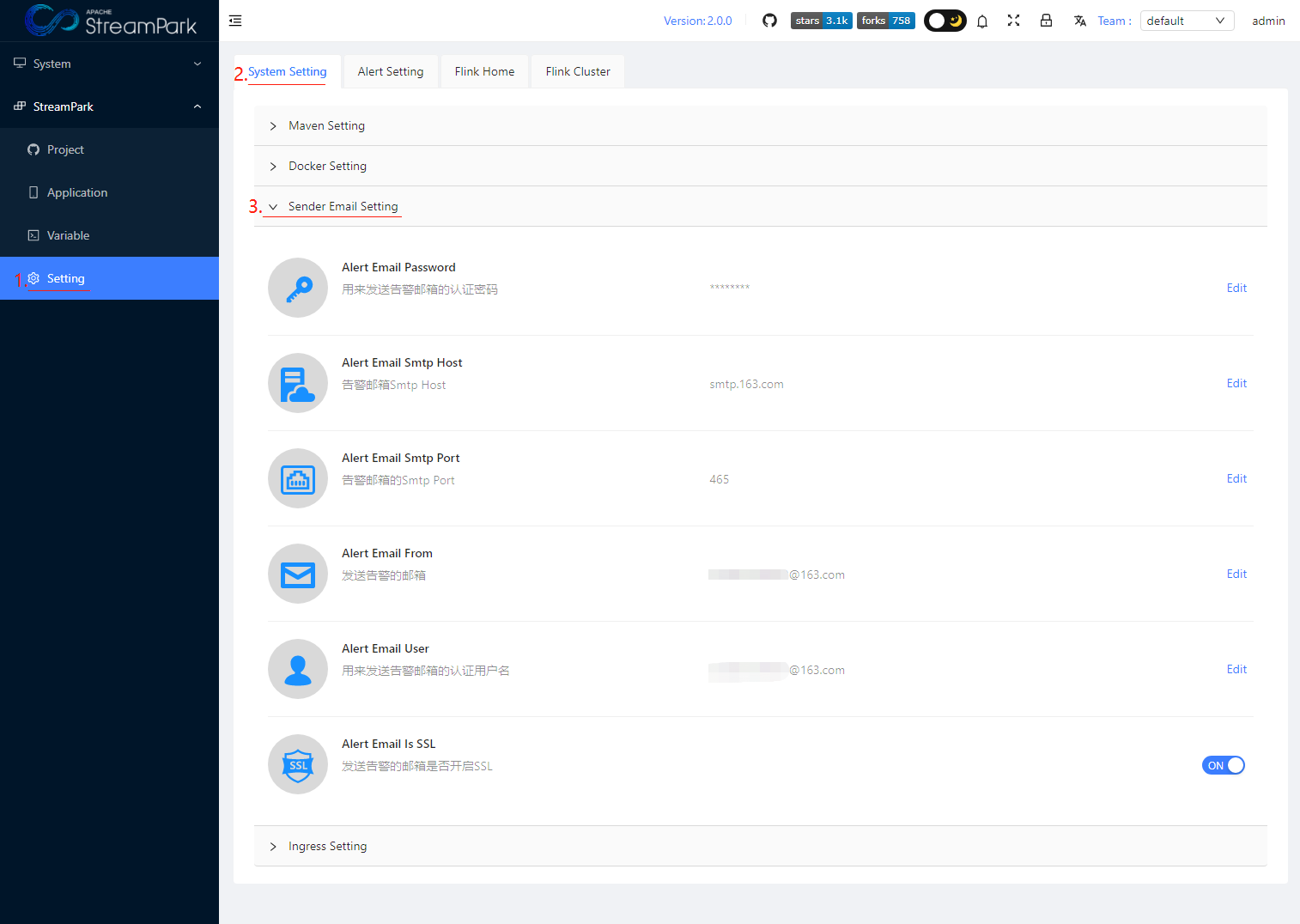 Above is configured using 163 mailboxes.Please fill in the specific email address according to your actual situation.
Above is configured using 163 mailboxes.Please fill in the specific email address according to your actual situation.
DingTalk
Firstly, choose DingTalk as the alert type.
Then, Enter robot DingTalk Tokens and other configurations, click Submit.
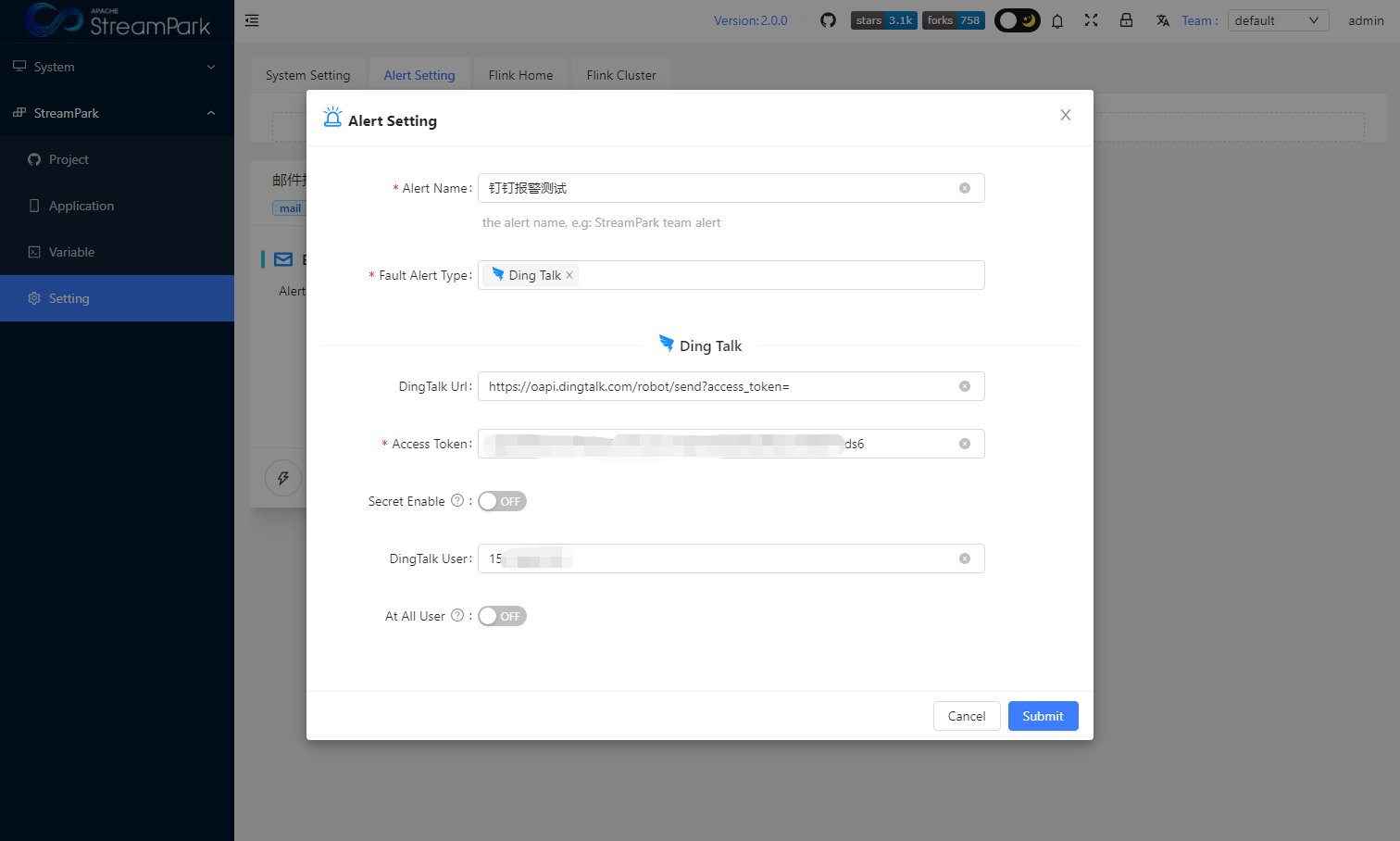
Configuration description:
DingTalk Url:optional.It is used to expose to a unified forwarding address within the company. By default,https://oapi.dingtalk.com/robot/send?access_token=is used, and then theTokenand the correspondingSecretare assembled for verification and sent.DingTalk Token:Required.It is the default address of the group robot, and intercepts the content afteraccess_token=.DingTalk User:optional.Use themobile phone numberto remind the corresponding users in the group. Multiple mobile phone numbers should be separated by commas ’ ,’ .At All User:optional.After it is turned on, the alarm message will be @ everyone in the group.Secret Enable:optional.Ifencryption signature verificationis enabled, theSecret Tokensignature verification key information needs to be configured.
Please refer to DingTalk official documentation for robot application and configuration
Wechat
Firstly, choose Wechat as the alert type.
Then, Enter robot WeChat token, click Submit.
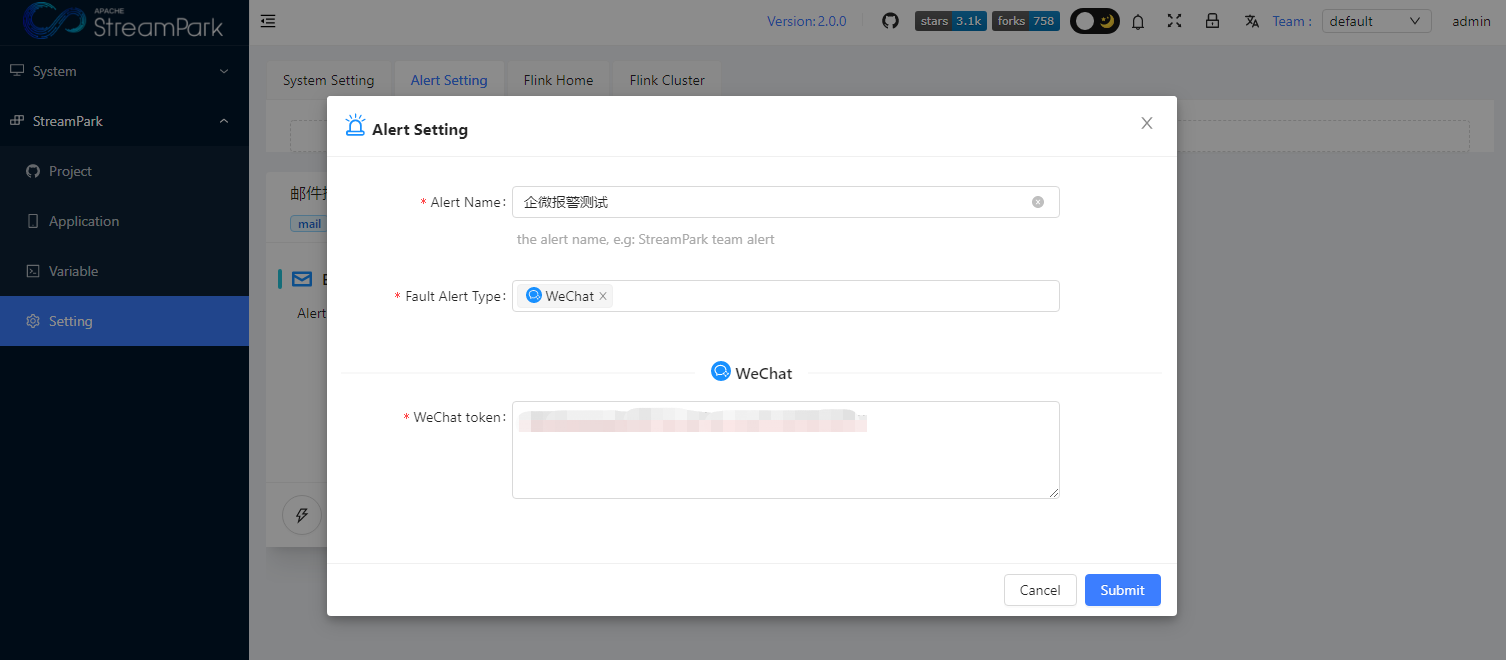 Configuration description:
Configuration description:
WeChat token:required.It is the default address of the group robot, and intercepts the content afterkey=
Please refer to the [WeChat official] (https://developer.work.weixin.qq.com/document/path/91770) for robot application and configuration
Lark
Firstly, choose Lark as the alert type.
Then, Enter robot Lark Tokens and other configurations, click Submit.
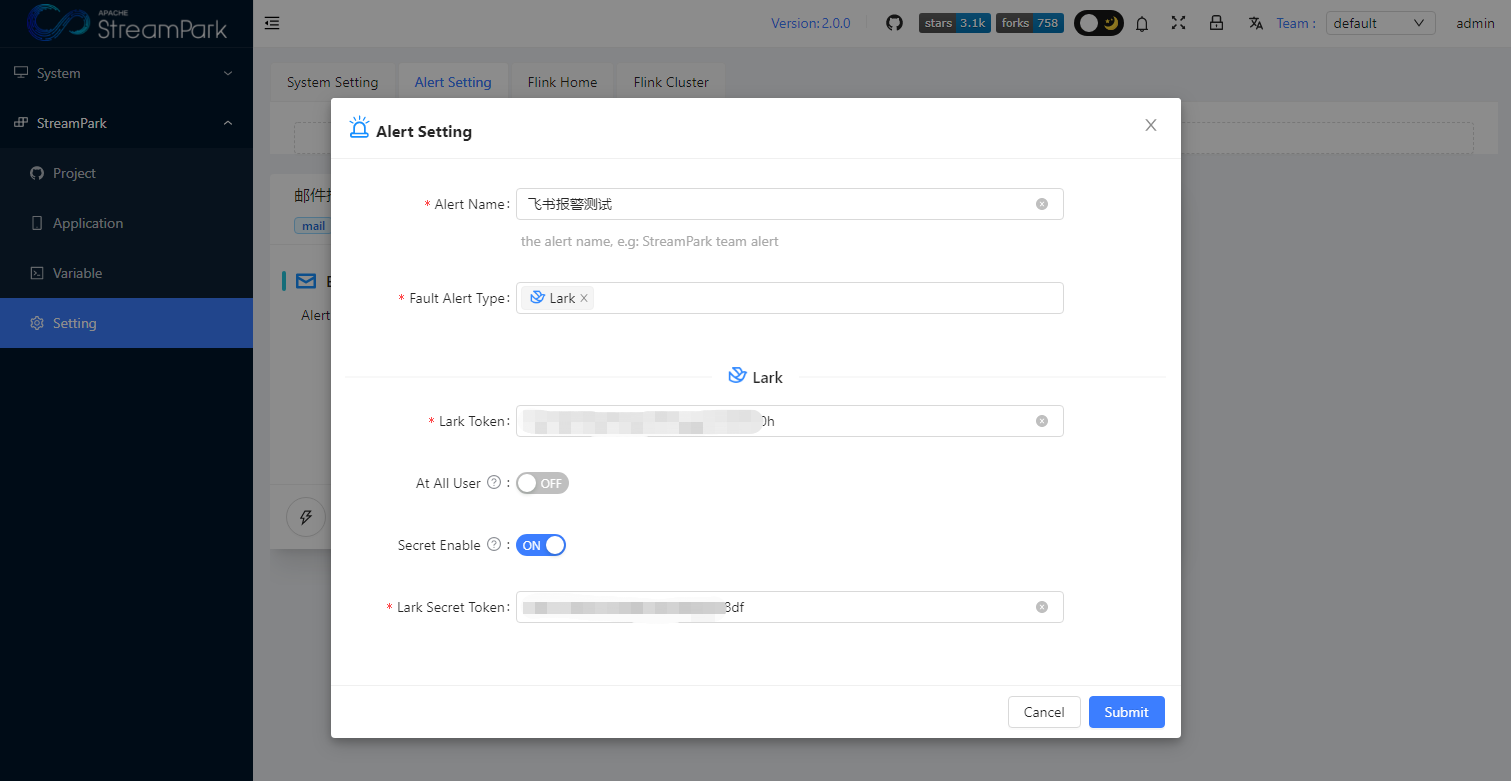
Configuration description:
streampark.proxy.lark-url:We need to add thestreampark.proxy.lark-urlproperty to the configuration file. Example: yaml file adds streampark.proxy.lark-url: https://open.feishu.cn .Lark Token:Required.1. It is the default address of the group robot, intercept the content behind/hook/.At All User:optional.2.After it is turned on, the alarm message will be @ everyone in the group.Secret Enable:optional.3.Ifencryption signature verificationis enabled, theSecret Tokensignature verification key information needs to be configured.
Please refer to the official Lark official for robot application and configuration
Alert Test
To ensure that the alert configuration information takes effect, we encourage to perform a message notification test——click the Lightning button below the corresponding configuration information
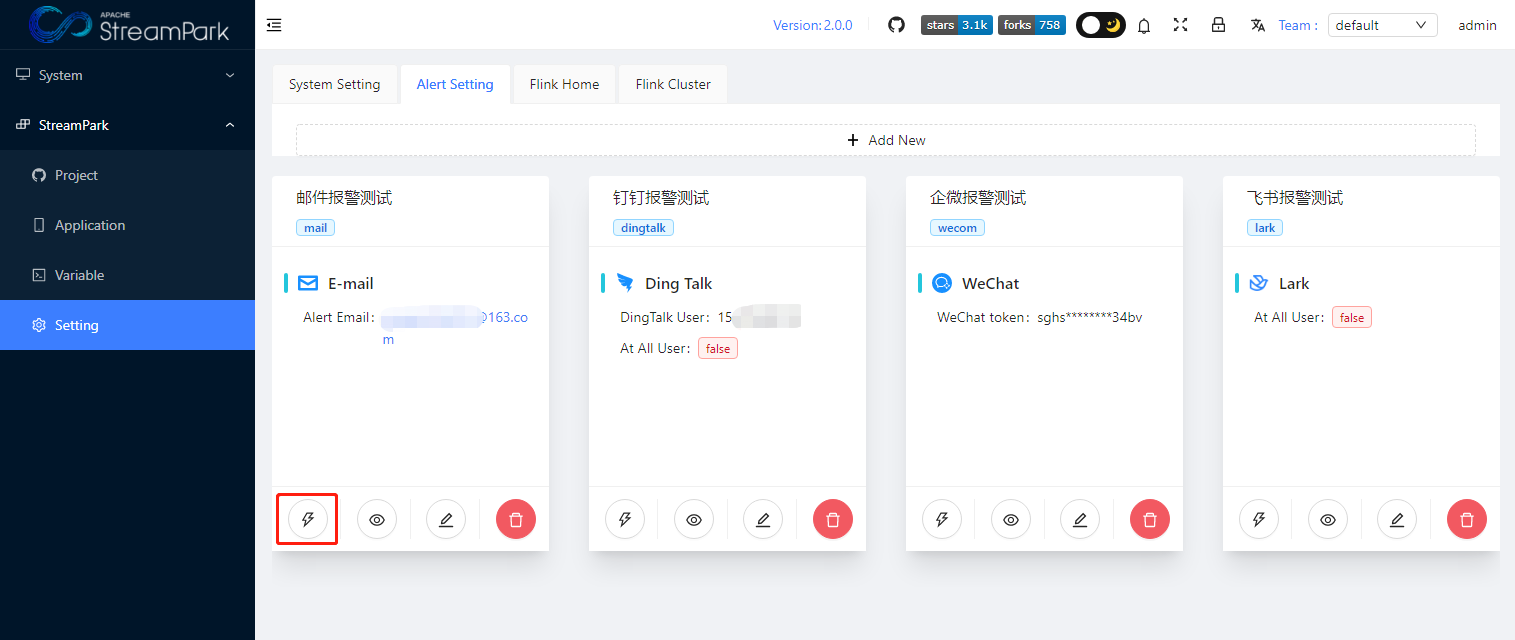
If the test is sent successfully, the return is as follows:
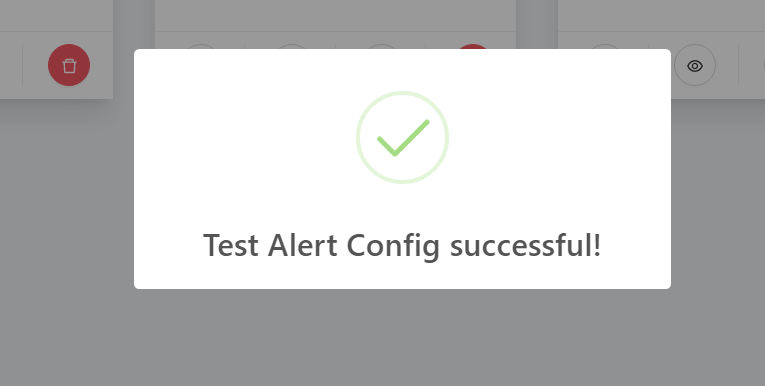
- Ding Talk
- Lark
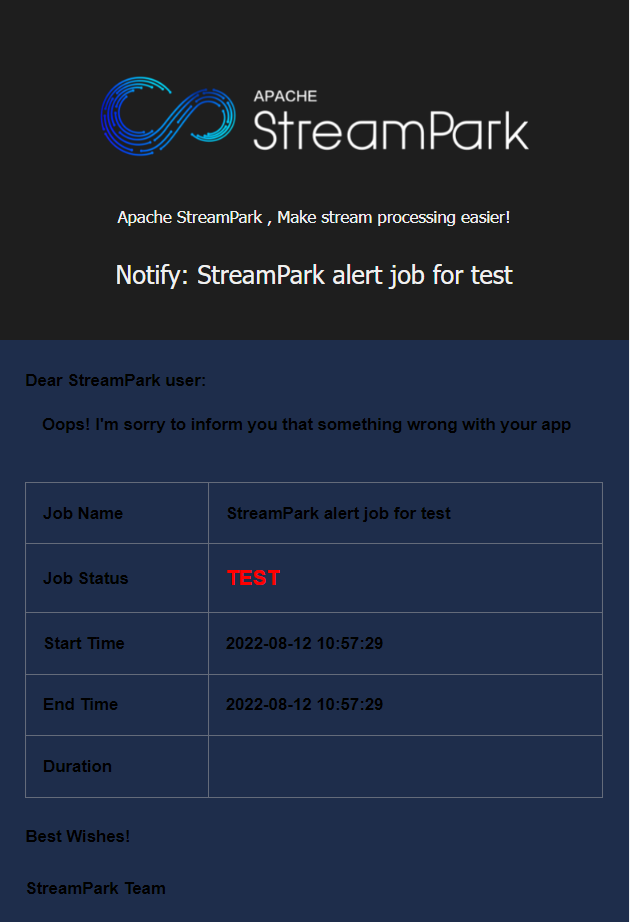
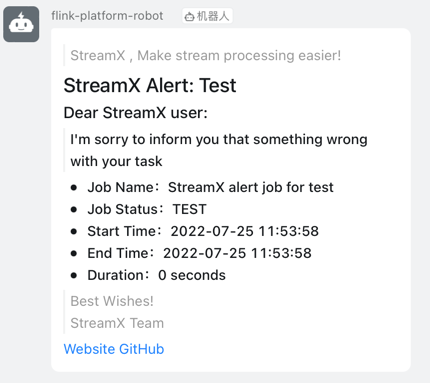
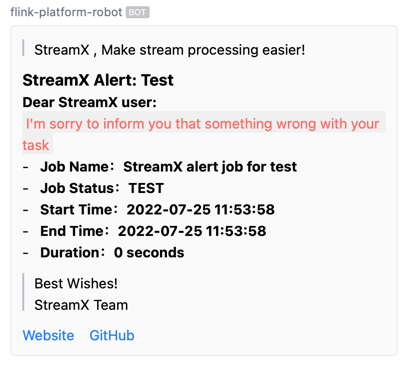
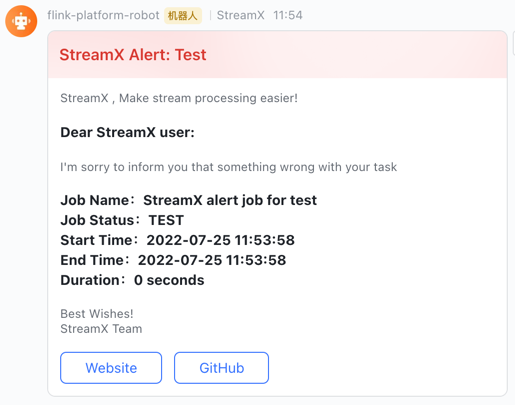
Modify alert configuration:
Click the edit button below the corresponding alarm configuration information to modify the corresponding configuration information. click Submit to save.
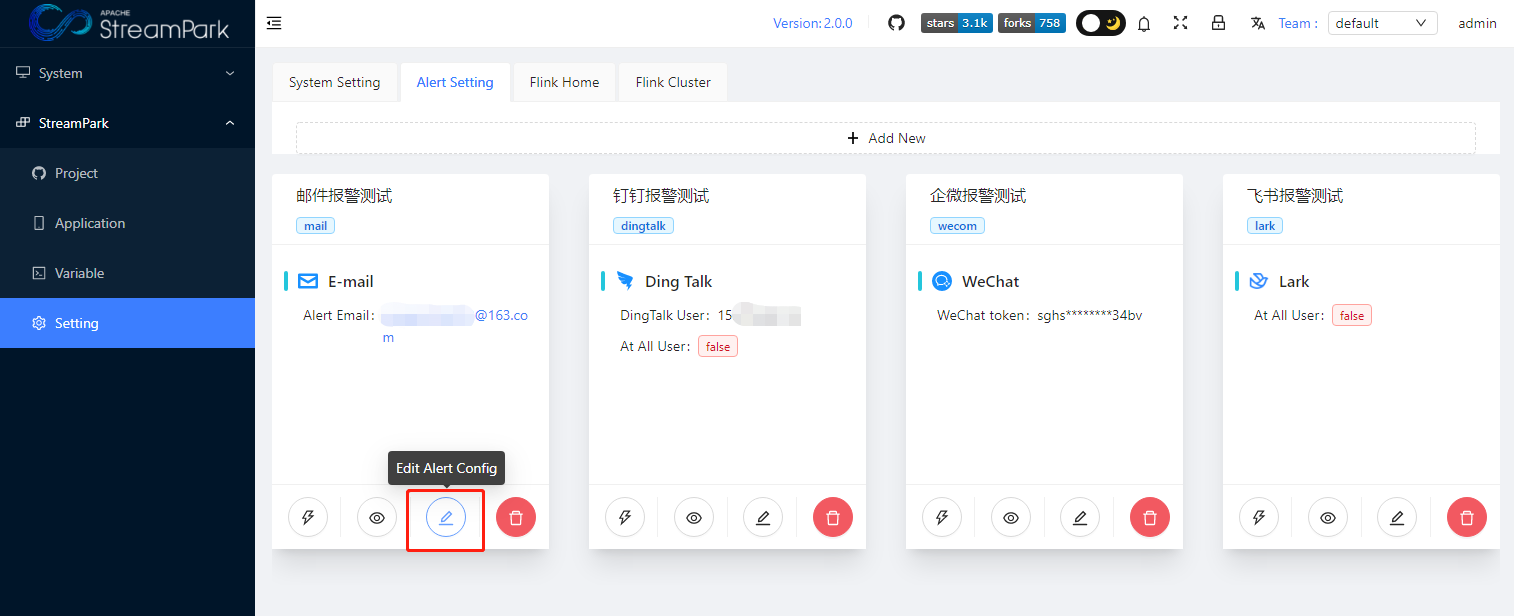
Use alert configuration
When the application task is created and modified, configured alert could be selected in the Fault Alert Template.

Delete alert configuration:
Click the trash can button below the corresponding alarm configuration information to delete the corresponding configuration information。
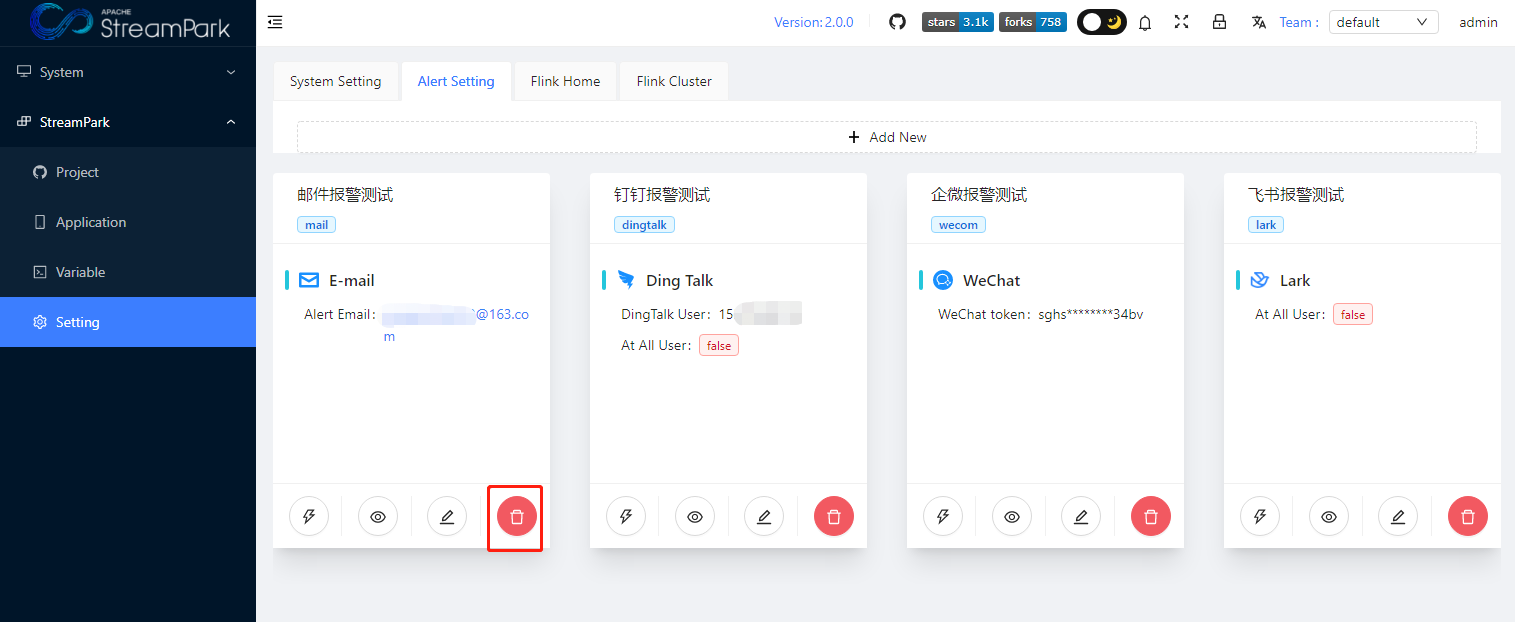
This information will be shown after the deletion is successful:
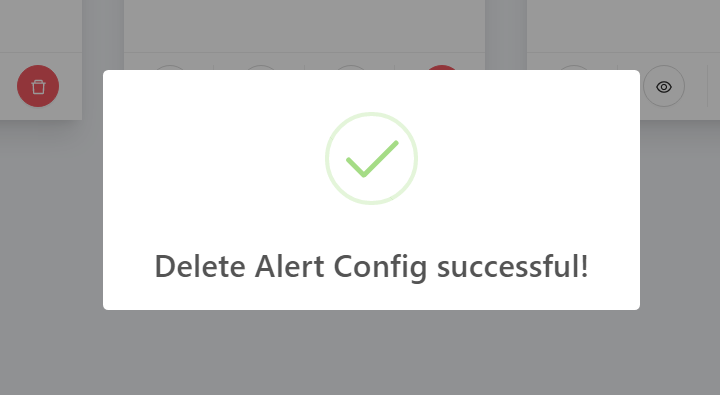
The alert configuration plans to delete should be ensured that not used in any application configuration